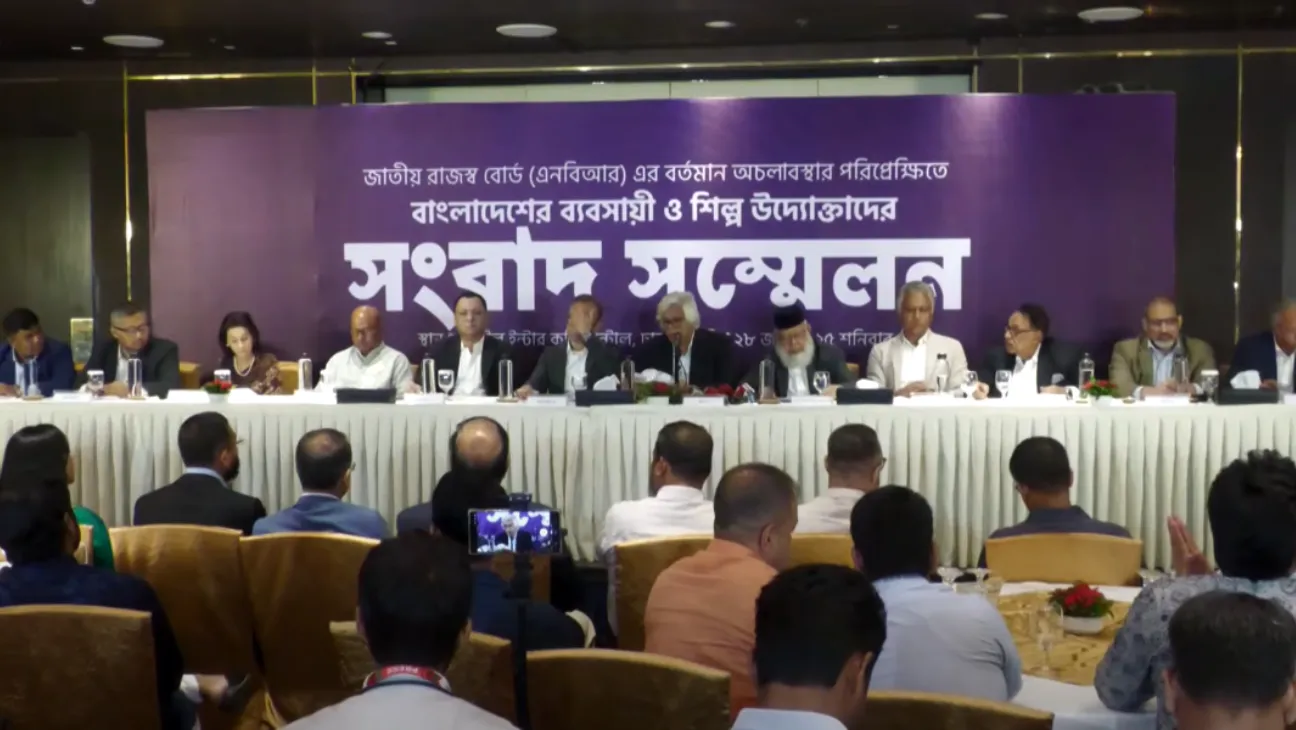Basically, the biggest names in Bangladesh business got together on Saturday and told striking NBR officials to stop, right now, with no strings attached. They warned that this whole stalemate is already a disaster for exports and trade. At a press conference, you had everyone there—the garment guys from BGMEA, the chamber of commerce from DCCI, you name it.
The task of delivering this stark warning fell to Anwar-ul-Alam Chowdhury, president of the Bangladesh Chamber of Industry.
Reading a joint statement on behalf of the entire business community, he laid out the grim reality they all fear: a wave of canceled export orders, ports grinding to a halt, and a logistical mess that would be nearly impossible to clean up.
He noted that some buyers have already threatened to cancel shipments. The cost of doing business, he said, is rising sharply due to demurrage fees at four times the standard rate.
“This isn’t just a delay. This is a major disruption,” Chowdhury said.
BTMA President Shawkot Aziz Russell took a harder stance. In response to media questions, he criticized the NBR strike as being driven by internal power struggles rather than policy issues.
“This is about dividing money and influence,” Russell said. “We’re caught in the middle. They’ve troubled us for years, and now they’ve turned on the government. Next, it’ll be the whole nation.”
He added that the strike is damaging not just industries, but the entire economic structure.
The strike follows the government’s move to dissolve the NBR and form a new tax structure aligned with international standards. In response, some NBR officials launched a protest, including a call for the resignation of the current chairman. The situation has led to a near-total shutdown in customs operations, delaying revenue collection and straining export channels.
Business leaders backed the government’s reform plan and criticized the disruption. They said NBR reforms had been recommended long ago by international development bodies, including the World Bank, and that a complete overhaul of the revenue sector is long overdue.
“There’s no example anywhere in the world where an entire customs system shuts down like this, unless during wartime,” one participant noted. “We can’t allow this to continue.”
Bangladesh’s garment industry, the country’s largest export sector, is reportedly losing billions of taka every day due to stalled customs clearance. Some factories are facing storage issues. Others risk missing delivery deadlines.
The speakers called on NBR employees to return to work immediately and engage in dialogue through proper channels rather than disrupting national operations.
“We are appealing to reason,” said one representative. “This cannot be resolved by holding the economy hostage.”









